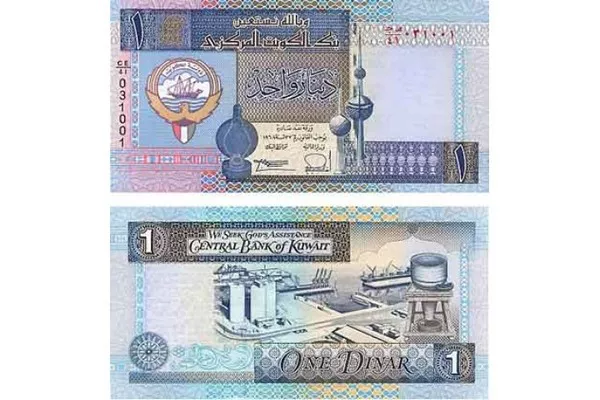Singapore is a global hub for trade, finance, and tourism. The country is home to multinational corporations and world-class shopping destinations, which attract millions of visitors every year. With its booming economy and stable political climate, Singapore has become a popular destination for investors looking to diversify their portfolios. One of the most important considerations for investors is the choice of currency to use in Singapore.
In this article, we will explore the best currency to use in Singapore. We will examine the different currencies that are accepted in the country, and the advantages and disadvantages of using each one. We will also discuss the factors that investors should consider when choosing a currency to use in Singapore.
Accepted Currencies in Singapore
The official currency of Singapore is the Singapore dollar (SGD). However, many businesses in Singapore also accept other major currencies such as the US dollar (USD), the Euro (EUR), the British pound (GBP), the Australian dollar (AUD), and the Japanese yen (JPY).
Advantages and Disadvantages of Using Different Currencies in Singapore
1. Singapore Dollar (SGD)
The Singapore dollar is the official currency of Singapore. It is widely accepted by businesses in the country, and it is the most convenient currency to use for day-to-day transactions. The SGD is a stable currency that has been able to maintain its value over the years. This stability has made it an attractive currency for investors who are looking for a safe haven.
One disadvantage of using the SGD is that it may not be the most cost-effective currency to use for international transactions. If you are conducting business with countries outside of Singapore, you may need to convert your SGD into another currency, which could result in additional fees and charges.
2. US Dollar (USD)
The US dollar is one of the most widely accepted currencies in the world, and it is also widely accepted in Singapore. Many businesses in Singapore accept payment in USD, especially those that deal with international customers. The USD is a stable currency that has been able to maintain its value over the years, and it is widely recognized as a global reserve currency.
One advantage of using the USD is that it is widely accepted around the world, which makes it a convenient currency to use for international transactions. However, one disadvantage of using the USD in Singapore is that you may not get the best exchange rate when converting your USD into SGD.
3. Euro (EUR)
The Euro is another major currency that is widely accepted in Singapore, especially by businesses that deal with European customers. The Euro is a stable currency that is widely recognized as a global reserve currency. It is also one of the most traded currencies in the world.
One advantage of using the Euro is that it is widely accepted around the world, which makes it a convenient currency to use for international transactions. However, like the USD, you may not get the best exchange rate when converting your EUR into SGD.
4. British Pound (GBP)
The British pound is another major currency that is widely accepted in Singapore, especially by businesses that deal with UK customers. The GBP is a stable currency that is widely recognized as a global reserve currency. It is also one of the most traded currencies in the world.
One advantage of using the GBP is that it is widely accepted around the world, which makes it a convenient currency to use for international transactions. However, like the USD and the EUR, you may not get the best exchange rate when converting your GBP into SGD.
5. Australian Dollar (AUD)
The Australian dollar is another major currency that is widely accepted in Singapore, especially by businesses that deal with Australian customers. The AUD is a stable currency that is widely recognized as a global reserve currency. It is also one of the most traded currencies in the world.
One advantage of using the AUD is that it is widely accepted around the world, which makes it a convenient currency to use for international transactions. However, like the USD, EUR, and GBP, you may not get the best exchange rate when converting your AUD into SGD.
6. Japanese Yen (JPY)
The Japanese yen is another major currency that is widely accepted in Singapore, especially by businesses that deal with Japanese customers. The JPY is a stable currency that is widely recognized as a global reserve currency. It is also one of the most traded currencies in the world.
One advantage of using the JPY is that it is widely accepted around the world, which makes it a convenient currency to use for international transactions. However, like the other major currencies, you may not get the best exchange rate when converting your JPY into SGD.
Factors to Consider When Choosing a Currency to Use in Singapore
1. Exchange rate stability: You want to choose a currency that is stable and has a consistent exchange rate with the Singapore dollar. This will help you avoid any unexpected fluctuations in the exchange rate that could negatively impact your transactions.
2. Transaction fees: Different currencies may have different transaction fees when exchanging them for Singapore dollars. Make sure to compare the fees for each currency before making your decision.
3. Accessibility: Consider how easy it is to obtain the currency you want to use in Singapore. Some currencies may be more widely accepted and accessible than others.
4. Local regulations: Be aware of any local regulations that may affect your ability to use certain currencies in Singapore. For example, some currencies may have restrictions on how much you can bring into the country or may require special permissions to use.
5. Personal preference: Finally, consider your personal preferences and needs when choosing a currency. For example, if you frequently travel to a specific country, you may prefer to use their currency in Singapore to avoid excessive exchange fees.


